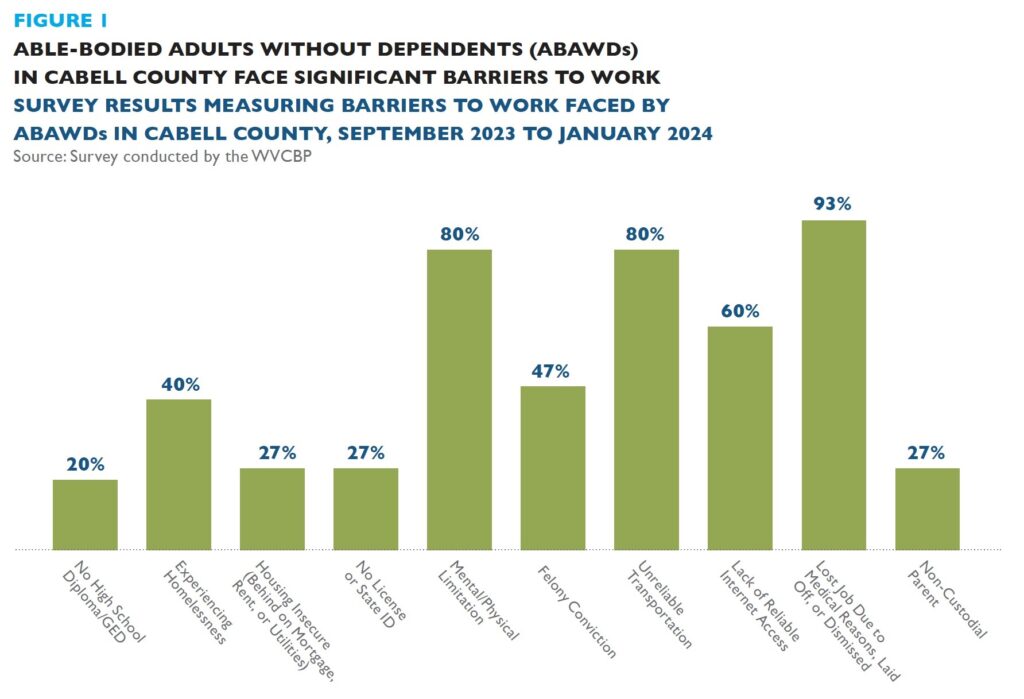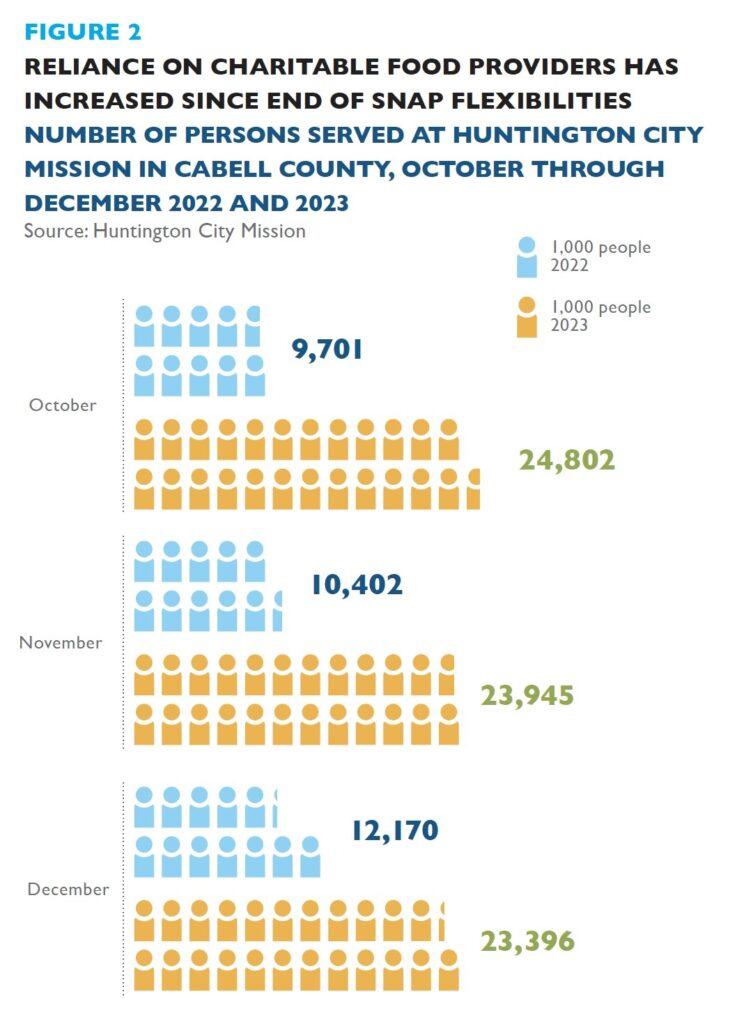In July 2023, West Virginia reimplemented pre-pandemic time limits for some adults receiving food assistance via the Supplemental Nutrition Assistance Program (SNAP). The time limits apply to adults between 18 and 52 (up to 54 in September 2024) without a documented disability and without children under 18 in the household, often referred to as “able-bodied adults without dependents”(ABAWDs), though this term is problematic and inaccurate in many cases. Impacted adults are only eligible for SNAP for three months over a three-year period unless they report work or qualify for an exemption.
Read the full Cabell County study here.
Many studies have highlighted that work reporting requirements have no impact on employment but increase hunger and harm local economies. Furthermore, a 2015 study in Ohio found that people impacted by these restrictions often face barriers that prevent them from meeting the requirements.
Over the last several months the WVCBP conducted research in Cabell County to assess the impacts of these SNAP policy changes. The county is considered to have typical levels of economic and job opportunity, with an unemployment rate on par with the statewide average. However, Cabell County and its county seat, Huntington, face unique challenges, with the city considered the epicenter of the addiction epidemic. Our team interviewed individuals in the county who lost their SNAP benefits due to the reporting requirements.
Ultimately, our study found that the individuals impacted by SNAP policy changes who lost their food assistance faced hardships that made meeting said reporting requirements incredibly difficult, including not having a high school diploma or GED, limited access to personal or public transportation, internet and phone access limitations, felony conviction records, and more.

Additionally, our researchers partnered with local charitable food providers and pantries to assess the impact of SNAP policy changes on food need in the community. In Cabell County, charitable food pantries saw spikes in the number of meals served in the fall of 2023 as pandemic-era SNAP programs and flexibilities ended. This indicates that those who lost their SNAP benefits did not become more economically stable or food secure, but instead had to meet their food insecurity needs through these community programs.

You can read the full Cabell County study here.